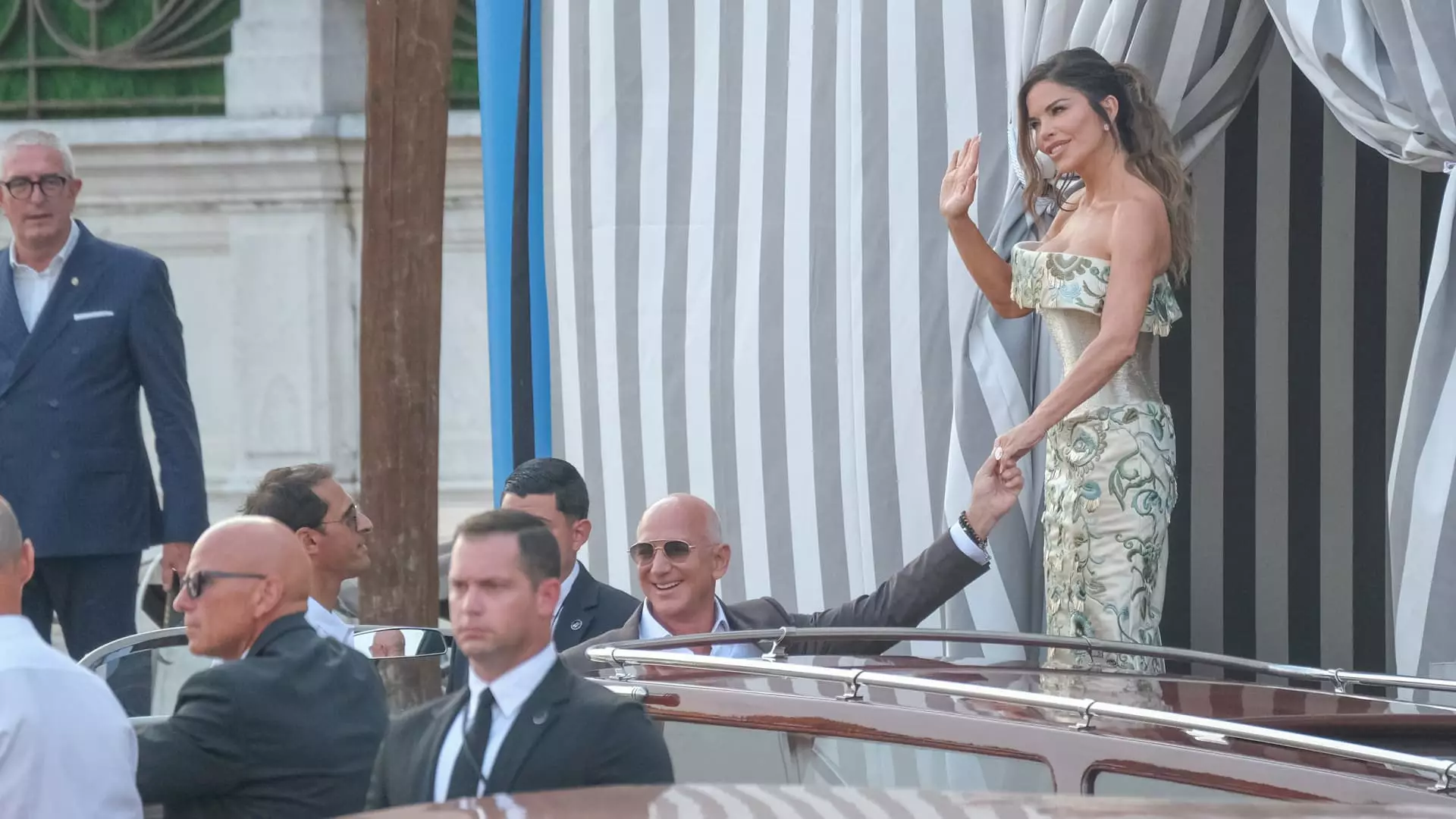The billionaire wedding of Jeff Bezos and Lauren Sanchez in Venice has become a striking exemplification of unchecked wealth flaunted in the heart of a city grappling with deep socio-economic challenges. From the guest list teeming with global celebrities and political figures to the staggering $50 million price tag, the event epitomizes an opulent spectacle seemingly detached from the realities faced by everyday Venetians. This isn’t just a high-profile celebration; it’s a glaring reminder of the growing chasm between the ultra-rich elite and the local communities hosting their excess.
What’s notably discomforting is the sheer scale of indulgence — a multi-day procession spreading across exclusive venues like a private island and the historic Arsenale, which had to be altered for security. Priceless cultural spaces, earmarked for public enrichment and heritage preservation, temporarily transformed into private playgrounds for those motivated by wealth and status rather than community or tradition. The lavish parties – including a foam party and a Great Gatsby-themed gala – feel tone-deaf in a city already buckling under the weight of rampant tourism and environmental strain.
The Impact on Venice: A City Under Siege
Venice has long wrestled with the consequences of over-tourism. Once a thriving cultural and historical jewel, the city now teeters on the edge of being overwhelmed by visitors who flood the canals and streets. This unchecked influx strains infrastructure, drives up living costs, and marginalizes local residents who find themselves increasingly displaced from their own city. Last year’s introduction of a tourist entry fee was a patchwork attempt to mitigate these problems, signaling an official acknowledgment that the magic of Venice cannot sustain infinite consumption.
Yet, the Bezos wedding, arriving on the heels of these measures, reveals a troubling contradiction. While Venice tries to protect itself from mass tourism’s damaging effects, it simultaneously becomes a venue for elite extravagance that implicitly encourages the further commodification of its heritage. The influx of private jets, super yachts, high-end shopping sprees, and fully booked luxury hotels does little to alleviate the city’s stress—if anything, it exacerbates the divide by turning a fragile ecosystem into a playground for the wealthy.
Philanthropy or PR? The Charity Facade
It’s worth considering the token charitable donations linked to this event. While Bezos’s pledge of 2 million euros to Corila, an organization studying the Venetian lagoon’s fragile ecosystem, might seem generous, it feels more like a cosmetic gesture than a genuine solution. When juxtaposed against the event’s $50 million price tag and the associated ecological footprint, the donation is a modest drop in a very large bucket.
This superficial philanthropy risks normalizing the behavior of the ultra-rich who engage in grandiose spending while sprinkling small acts of charity to maintain social license. True responsibility demands a commitment not only to compensate but fundamentally transform the exploitative practices enabled by their wealth. Charity cannot be a fig leaf obscuring the damage enacted on communities and environments.
Elite Privilege and the Future of Global Heritage Sites
The Bezos wedding exposes a wider dilemma about how modern society values and manages cultural heritage in the age of wealth disparity. The use of UNESCO-protected sites as exclusive venues for the ultra-wealthy cements a troubling precedent. It positions culture and history as backdrops for conspicuous consumption rather than public goods belonging to all.
There is an urgent need to rethink and regulate these spaces to ensure they are not weaponized by the rich to amplify their status at the expense of the collective good. While cities like Venice thrive on tourism, unchecked commercialization by the privileged few threatens to erode the very identity and sustainability of these places. Governments, local authorities, and international bodies must intervene decisively, setting boundaries that restore dignity to cultural heritage and prioritize residents’ quality of life.
A Broader Reflection on Inequality and Its Consequences
Finally, the spectacle of this wedding is emblematic of a larger societal problem: the normalization of concentration of wealth that fuels exclusion and environmental degradation. The fact that global figures gather in one of the world’s most vulnerable cities to indulge in excess underlines a disturbing insensitivity to the pressing challenges of inequality and sustainability.
As a society striving for balance—a core tenet of center-liberal values—we must critique and resist such unrestrained displays of wealth that deepen divides and undermine shared responsibility. True progress is found not in ostentatious displays that alienate, but in fostering inclusivity, sustainability, and respect for the cultural and ecological treasures that bind us all.

